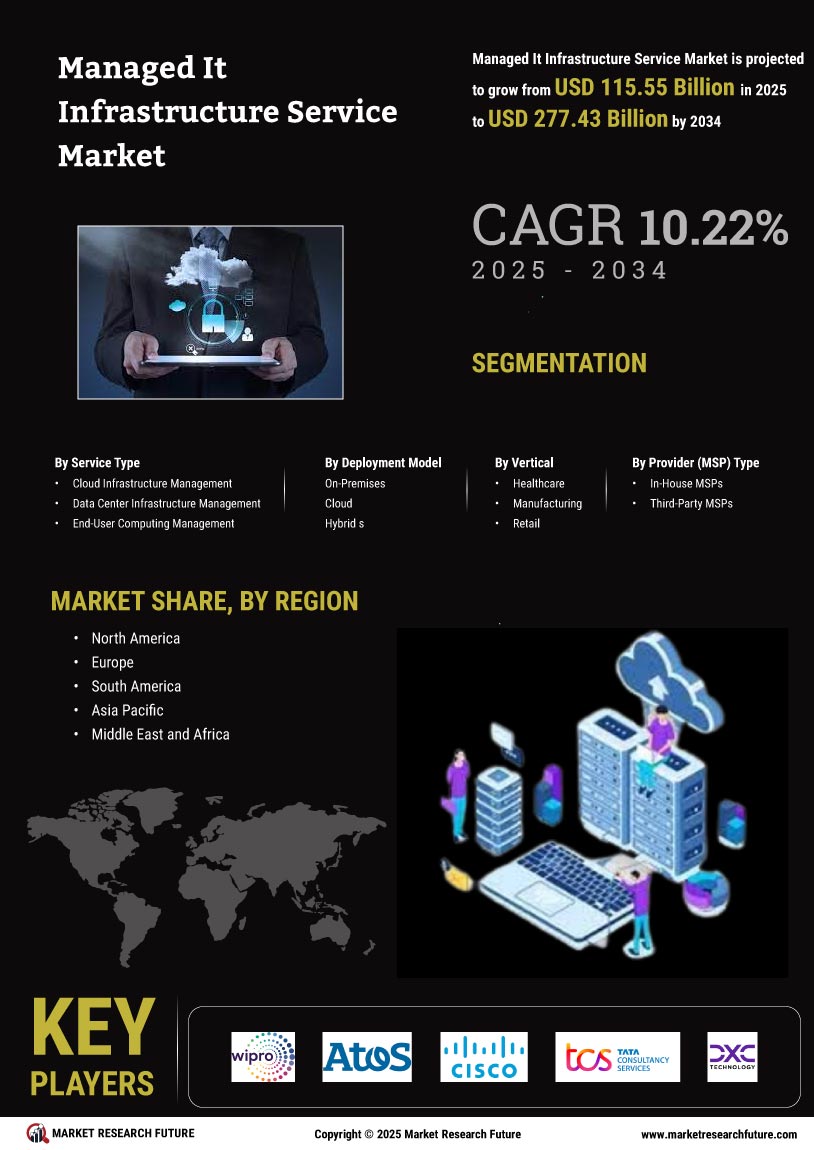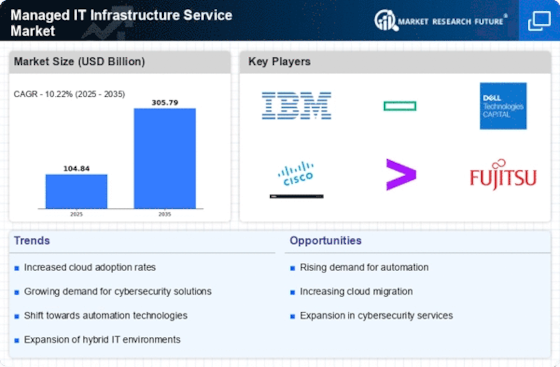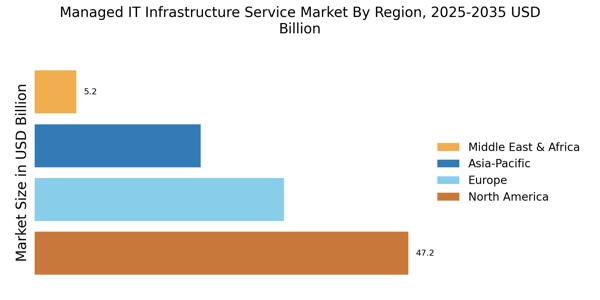Rising Demand for Scalability
The Managed IT Infrastructure Service Market is experiencing a notable increase in demand for scalable solutions. Organizations are increasingly seeking IT services that can grow alongside their business needs. This trend is driven by the necessity for flexibility in resource allocation, particularly as companies expand or pivot in response to market dynamics. According to recent data, approximately 70% of enterprises are prioritizing scalability in their IT infrastructure decisions. This shift indicates a clear preference for managed services that can adapt to varying workloads and user demands, thereby enhancing operational efficiency. As businesses continue to evolve, the Managed IT Infrastructure Service Market is likely to see sustained growth in scalable service offerings, catering to diverse client requirements.
Growing Focus on Cost Efficiency
Cost efficiency remains a pivotal driver within the Managed IT Infrastructure Service Market. Organizations are increasingly recognizing the financial benefits of outsourcing their IT infrastructure management. By leveraging managed services, companies can reduce overhead costs associated with maintaining in-house IT teams and infrastructure. Recent studies suggest that businesses can save up to 30% on IT expenditures by adopting managed services. This trend is particularly pronounced among small to medium-sized enterprises, which often lack the resources to maintain extensive IT operations. As the demand for cost-effective solutions continues to rise, the Managed IT Infrastructure Service Market is poised for growth, with providers offering tailored services that align with budgetary constraints.
Advancements in Technology Integration
Technological advancements play a crucial role in shaping the Managed IT Infrastructure Service Market. The integration of cutting-edge technologies such as artificial intelligence, machine learning, and automation is transforming how IT services are delivered. These innovations enable managed service providers to offer more efficient and effective solutions, enhancing service delivery and customer satisfaction. For example, automation tools can streamline routine tasks, allowing IT teams to focus on strategic initiatives. As organizations increasingly seek to leverage technology for competitive advantage, the demand for managed IT services that incorporate these advancements is likely to grow. This trend suggests a promising future for the Managed IT Infrastructure Service Market, as providers continue to innovate and adapt to technological changes.
Emphasis on Enhanced Security Measures
Security concerns are paramount in the Managed IT Infrastructure Service Market, as cyber threats continue to evolve. Organizations are increasingly prioritizing security in their IT infrastructure management strategies. The rise in data breaches and cyberattacks has prompted businesses to seek managed services that offer robust security solutions. Recent statistics indicate that nearly 60% of companies have reported an increase in cyber threats, underscoring the need for enhanced security measures. Managed service providers are responding by integrating advanced security protocols and technologies into their offerings. This focus on security not only protects sensitive data but also builds trust with clients. As security remains a top priority, the Managed IT Infrastructure Service Market is expected to grow, driven by the demand for comprehensive security solutions.
Increased Regulatory Compliance Requirements
The Managed IT Infrastructure Service Market is significantly influenced by the growing need for regulatory compliance. Organizations across various sectors are facing stringent regulations regarding data protection and privacy. This has led to an increased reliance on managed IT services to ensure compliance with these regulations. For instance, industries such as finance and healthcare are particularly affected, as they must adhere to specific standards like GDPR and HIPAA. The complexity of these regulations often necessitates specialized knowledge and resources, which managed service providers can offer. As compliance requirements continue to evolve, the Managed IT Infrastructure Service Market is likely to expand, with providers enhancing their offerings to help clients navigate these challenges effectively.

















